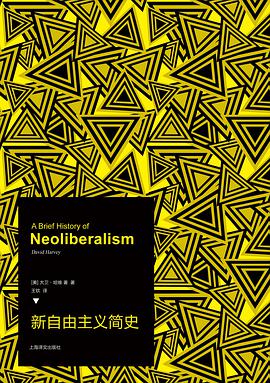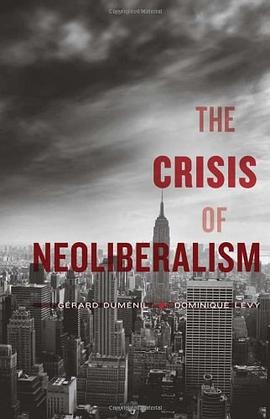新自由主义简史 豆瓣 Goodreads
A Brief History of Neoliberalism
8.3 (31 个评分)
作者:
[英国] 大卫·哈维
译者:
王钦
上海译文出版社
2010
- 12
1978年,中国经济在邓小平的领导下,向自由化的转变道路上迈出了重要步伐。
1979年,英国首相撒切尔夫人下令限制工会力量并终止国家持续十年之久的滞胀惨状。
1980年,里根当选美国总统,通过一系列特殊政策为金融和产业松绑,将美国带上了一条复苏经济的道路。
或许在未来的历史学家看来,1978年至1980年这几年是世界社会史和经济史的革命性转折点,因为正是在这几年中,新自由主义作为一种政治经济实践的理论开始占据主流地位。
新自由主义认为,通过建立一个以稳固的个人财产权、自由市场以及自由贸易为特征的制度框架,能释放个体企业的自由和技能,从而最大程度上促进人的幸福。
自1970年代以来,松绑、私有化、国家从许多社会供给领域中退出,开始变得司空见惯。从前苏联解体后新成立的国家到老牌社会民主制和福利国家,几乎所有国家都接受了某种形式的新自由主义理论。另外,支持新自由主义的人们如今都身居要位,影响遍及教育、媒体、公司董事会和财政机构、政府核心机构以及那些管理全球财政和贸易的国际性机构。也就是说,新自由主义作为话语模式已居霸权地位,它成为我们许多人解释和理解世界的常识的一部分。
那么,新自由主义打哪儿来?它又是如何在世界舞台上泛滥的?对这个政治经济学故事的批判性考察,将为我们确认和建构另一种未来政治和经济安排的可能,提供一个框架。
1979年,英国首相撒切尔夫人下令限制工会力量并终止国家持续十年之久的滞胀惨状。
1980年,里根当选美国总统,通过一系列特殊政策为金融和产业松绑,将美国带上了一条复苏经济的道路。
或许在未来的历史学家看来,1978年至1980年这几年是世界社会史和经济史的革命性转折点,因为正是在这几年中,新自由主义作为一种政治经济实践的理论开始占据主流地位。
新自由主义认为,通过建立一个以稳固的个人财产权、自由市场以及自由贸易为特征的制度框架,能释放个体企业的自由和技能,从而最大程度上促进人的幸福。
自1970年代以来,松绑、私有化、国家从许多社会供给领域中退出,开始变得司空见惯。从前苏联解体后新成立的国家到老牌社会民主制和福利国家,几乎所有国家都接受了某种形式的新自由主义理论。另外,支持新自由主义的人们如今都身居要位,影响遍及教育、媒体、公司董事会和财政机构、政府核心机构以及那些管理全球财政和贸易的国际性机构。也就是说,新自由主义作为话语模式已居霸权地位,它成为我们许多人解释和理解世界的常识的一部分。
那么,新自由主义打哪儿来?它又是如何在世界舞台上泛滥的?对这个政治经济学故事的批判性考察,将为我们确认和建构另一种未来政治和经济安排的可能,提供一个框架。

